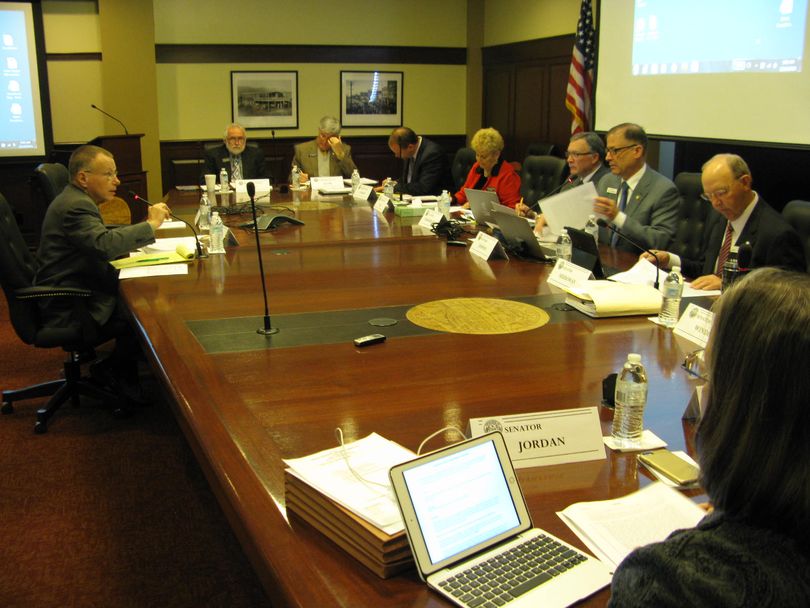Urban renewal panel: ‘It might get a little dry’

The Legislature’s interim committee on urban renewal has convened this morning, and Co-Chairman Sen. Dan Johnson, R-Lewiston, announced that the lawmakers will go through their proposed legislation, “section by section or line by line.” He said, “It might get a little dry, but I do want to engage the committee today.”
The first few provisions in the bill include a name change, changing “Idaho Urban Renewal Law” to “Idaho Urban Renewal Law, the Local Economic Development Act, and the Community Development Act of 2016.” The second change cuts and pastes in a section from the existing Local Economic Development Act. The third allows the option for a local governing body to have its urban renewal commissioners elected or appointed, and to impose term limits. It also requires that all board members be residents of the county in which the urban renewal district is located or doing business.
Sen. Maryanne Jordan, D-Boise, questioned the election-option provision, wondering “why we would need to include that here if that opportunity does exist.”
Legislative staffer Mike Nugent explained the next section, on definitions, saying like the earlier section, he just copied it from the Local Economic Development Act. Later in the proposed bill, he said, is a provision that would repeal the current definitions section under that act, because they all would have been moved into the new combined law. "There are a lot of pages in this draft that are doing nothing more than just moving it from Chapter 29 into Chapter 20," Nugent said.
The proposed legislation also adds Utah's definition of "community development" to Idaho's urban renewal law, defining it as "development activities within a community, including the encouragement, promotion, or provision of development."
The committee then launched into discussion of the “reset” of the base assessment value when an urban renewal plan is changed, in accord with a recent Idaho Attorney General’s opinion. Johnson said the change would specify that “if a plan is modified or adopted that the base assessment is reset in that year.” That sparked discussion of how such a move would affect bonding or other existing agreements for projects.
